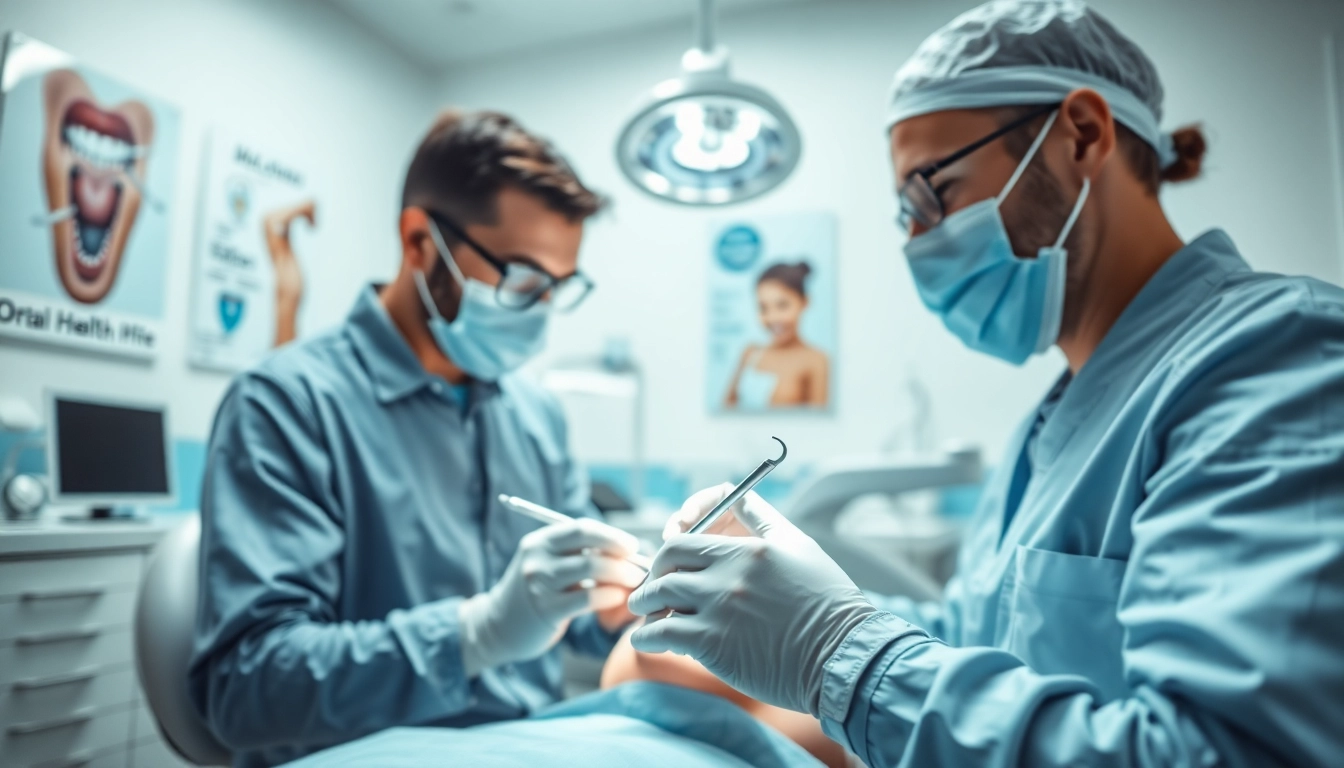1. What Are Dental Checkups?
1.1 Definition and Importance of Checkups
Dental checkups are preventive appointments with a dentist that typically occur every six months. They serve to monitor the health of your teeth and gums, allowing for early detection and addressing potential issues before they escalate. Regular checkups are essential because many dental problems, such as cavities or gum disease, often develop without any noticeable symptoms. This silent progression can lead to more severe conditions that may require extensive treatment and higher costs in the long term. Emphasizing the importance of regular dental visits is crucial for maintaining optimal oral health.
1.2 Frequency of Dental Checkups
The general recommendation for adults and children is to schedule dental checkups at least twice a year. However, specific needs may vary based on individual conditions, such as the presence of dental disease, gum health, or personal habits like smoking. Those with a history of dental issues may require more frequent visits, while others with good oral hygiene may be fine with annual checkups. It’s best to consult with your dentist regarding the ideal frequency for your checkups to ensure consistent monitoring of your oral health.
1.3 What to Expect During a Checkup
During a typical dental checkup, the following components are likely to occur:
- Assessment of Oral Health: The dentist examines your teeth and gums for any signs of decay, gum disease, or other abnormalities.
- X-rays: If necessary, x-rays may be taken to identify underlying issues not visible to the naked eye.
- Professional Cleaning: A dental hygienist will clean your teeth, removing plaque, tartar, and stain to ensure your mouth is healthy.
- Discussion and Recommendations: The dentist will discuss findings, offer preventive advice, and suggest treatment options if needed.
2. Benefits of Regular Checkups
2.1 Early Detection of Dental Issues
Regular dental checkups allow for the timely detection of dental issues before they become significant problems. Early identification of cavities, gum disease, or other oral health issues can significantly reduce the complexity and cost of treatment. Research suggests that preventive care can save patients money by avoiding more invasive treatments later, making regular checkups an economically sound choice for both oral and overall health.
2.2 Maintaining Overall Oral Health
Maintaining good oral health is not only crucial for your teeth but also impacts your overall health. Evidence has shown a direct link between oral health and general health conditions, such as heart disease and diabetes. Regular checkups help ensure that any bacteria in the mouth do not contribute to systemic health issues. Keeping your mouth healthy is a vital part of preventing other health concerns.
2.3 Professional Cleaning and Care
Even with regular brushing and flossing, it is virtually impossible for individuals to remove all the plaque and tartar from their teeth. During checkups, dental hygienists provide a professional cleaning that significantly reduces the risk of cavities and gum disease by removing these deposits effectively. This cleaning process not only keeps your teeth shining but also enhances your overall oral health.
3. Common Concerns About Dental Checkups
3.1 Anxiety About Dental Visits
Dental anxiety affects many people, causing them to avoid necessary checkups. Understanding that dental professionals are trained to handle anxious patients can help alleviate some of this fear. Techniques such as sedation dentistry, using calming environments, and even discussing fears openly with your dentist can help mitigate anxiety. Building a positive rapport with your dental team also plays a significant role in reducing pre-visit stress.
3.2 Cost of Checkups and Insurance Coverage
The cost of dental checkups can vary quite a bit depending on where you live and what is included in the visit. Many insurance plans cover preventive care, including checkups and cleanings, fully or partly. It’s advisable to check with your insurance provider regarding specific coverage for dental visits. Many dental practices offer payment plans or options for uninsured patients, which can make regular visits more accessible.
3.3 Addressing Fear of Pain During Checkups
Fear of pain is another common concern that can deter people from getting regular checkups. However, most procedures performed during checkups, such as cleanings and examinations, are painless. For those who still have fears of discomfort, discussing these concerns with the dentist can help. They can provide options for numbing agents or sedation that are available to keep the patient comfortable during their visit.
4. Preparing for Your Dental Checkup
4.1 What to Bring to Your Checkup
When preparing for a dental checkup, it can be helpful to bring various items to ensure a smooth visit. Important items include:
- Your insurance card or information if applicable.
- A list of medications you currently take, along with any allergies.
- Any recent x-rays from other dental providers, if applicable.
- Questions or topics you wish to discuss with your dentist.
4.2 Questions to Ask Your Dentist
Patients should feel empowered to ask questions during their dental visits. Common inquiries include:
- What steps can I take to improve my oral hygiene?
- Are there any concerns regarding my current dental health?
- What treatment options are available for specific dental issues?
- How can my diet affect my dental health?
4.3 Tips for a Successful Visit
To ensure a successful dental checkup, consider the following tips:
- Keep a regular schedule for checkups to create a habit.
- Maintain daily oral hygiene practices at home.
- Be honest about your dental health and habits with your dentist.
- Stay open to recommendations from your dental care team.
5. Conclusion: Prioritizing Your Checkups
5.1 Making Dental Checkups Part of Your Routine
Incorporating dental checkups into your routine is essential for long-term oral health. Approach them as no different from regular health checkups, where regular monitoring plays a crucial role in maintaining a healthy lifestyle. Setting reminders for appointments and creating a dental care schedule can help promote the habit of prioritizing these visits.
5.2 The Role of Checkups in Long-term Health
Regular checkups are integral not just for maintaining a beautiful smile but also for overall health. By providing preventative care, checkups can help avert serious dental issues and contribute to sustainable health outcomes throughout your life. Relationships between dental health and overall health reinforce the importance of consistency in dental care.
5.3 Encouraging Family Members to Schedule Checkups
Encouraging family members, especially children, to prioritize regular dental checkups can set a tone for lifelong health practices. Educating children about the importance of oral health through engaging discussions can help instill a positive attitude toward dentist visits. Scheduling family checkups together may also reduce anxiety and make the experience more enjoyable.
In conclusion, maintaining your dental health through regular checkups is a vital part of overall wellness. A proactive approach to your dental health fosters preventive care that extends beyond aesthetics, significantly impacting your long-term health condition.









